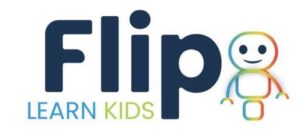Dive Brief:
-
While students who take college prep courses can reap benefits that include a clearer path to higher learning, encouraging underrepresented students to take these courses is not enough. Success is also dependent upon having supports in place for learners and the educators teaching them.
-
Elaine Allensworth, the Lewis-Sebring Director of the University of Chicago Consortium on School Research, points to an Early College High School model in North Carolina as an example of success “because it fostered supportive relationships between students and teachers, while other early college coursework models without those supports showed no improvements in college outcomes.”
-
However, Allensworth also cautions against requiring students to take college prep courses, saying that doing so can have a detrimental effect on learning particularly if stakeholders don’t steep themselves in the “bias and barriers” students may face.
Dive Insight:
Colleges reported a 7% decline in Black students enrolling during the pandemic, between the fall of 2020 to the fall of 2022, according to Word In Black. The news site noted that Brooklyn Laboratory Charter Schools felt spurred by that report to focus on increasing college enrollment, particularly among its student body, which is 93% Black and Hispanic.
College prep courses can play one role. But in addition to delivering a curriculum focused on college readiness, educators should work on developing connections with their students to ensure learners feel they have the support to succeed, said Allensworth.
Still, stakeholders should be careful about requiring college preparatory classes.
“A number of studies have even shown adverse effects on educational outcomes and equity from these efforts,” Allensworth said. “Improving equity in postsecondary outcomes requires not only encouraging all students to take postsecondary coursework, but ensuring students and teachers have the supports they need to be successful with those courses.”
Allensworth noted that a college preparatory curriculum implemented in Chicago in 1997 initially failed because the scaffolding needed in advance for it to succeed did not exist. There was a lack of math and science teachers who could teach the advanced courses, and teachers developing lessons didn’t know how to help students who needed additional support, she said.
“Eventually, schools built their instructional capacity, and the district developed systems of support for students, including double-period Algebra classes for students needing more support, and early warning monitoring systems to help students whose grades were not strong,” Allensworth said. “Now all students in the district take a college-prep curriculum and graduate and go to college at much higher rates than before the policy.”






Leave a Reply